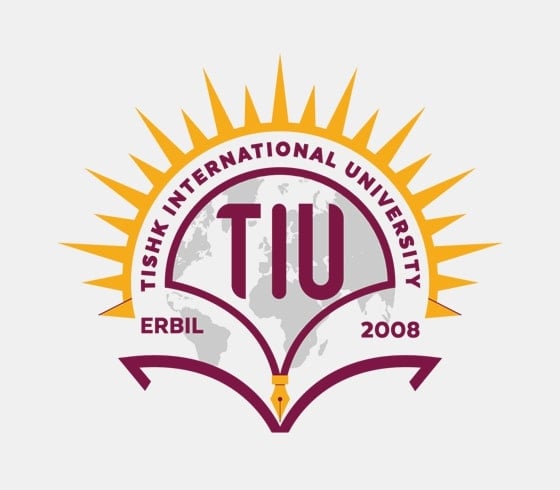volume 6 issue 1 article 5
Women Education: Women and Teaching Profession in Ghana
Authors: Wang Jiajia1 & Portia .V. Samba2
1 School of Teacher Education, Jiangsu University, Zhenjiang, China
2 School of Teacher Education, Jiangsu University, Zhenjiang, China
Abstract: Feminist theorists raise questions about hypotheses that are still common in the teaching fields that consist mostly of women. Education is a force that allows women to have expanded choices in the approach to capabilities and The World Bank is promoting education for women as it contributes to human capital. The purpose of this paper is to discuss women education, the teaching profession, and feminization of teaching in Ghana. It highlights and analyze why women are concerned about education, aspects of women’s education in Ghana, and why women are interested in teaching. Findings indicated that Ghanaian women are into teaching because of numerous reasons but a few of them include, the acceptance in the teaching profession i.e. they feel accepted and there is no discrimination. In addition, there is job security in the profession.
Keywords: Women Education, Teaching, Ghana, Feminized
References:
Arends-Kuenning, M., & Amin, S. (2001). Women’s capabilities and the right to education in Bangladesh.
International Journal of Politics, Culture, and Society, 15(1), 125–142.
Bank, B. J., Delamont, S., & Marshall, C. (2007). Gender and education: An encyclopedia. Greenwood Publishing Group.
Bystydzienski, J. M. (2002). Women and feminism in the association for humanist sociology. The American Sociologist, 33(4), 66–73.
Carusi, F. T. (2017). Why bother teaching? Despairing the ethical through teaching that does not follow. Studies in Philosophy and Education, 36(6), 633–645.
Costello, C., Wight, V., & Stone, A. (2016). The American Woman, 2003-2004: Daughters of a Revolution: Young Women Today. Springer.
Drudy, S., Martin, M., O’Flynn, J., & Woods, M. (2005). Men and the classroom: Gender imbalances in teaching. Routledge.
ECOWAS and FAO. (2018). National gender profile of agriculture and rural livelihoods. India.
Eliou, M. (1988). Women in the academic profession: Evolution or stagnation? Higher Education, 17(5), 505–524.
Eren, A., & Çetin, G. (2019). Pre-service teachers’ beliefs about the teaching profession, curriculum orientations, and personal responsibility. Curriculum Perspectives, 39(1), 19–32.
Esnard, T., & Cobb-Roberts, D. (2018). The Stony Road We Trod: Black Women, Education, and Tenure. In Black Women, Academe, and the Tenure Process in the United States and the Caribbean (pp. 1–46). Springer.
Hill, S. A. (2002). Teaching and doing gender in African American families. Sex Roles, 47(11–12), 493–506.
Kim, C., & Sakamoto, A. (2017). Women’s progress for men’s gain? Gender-specific changes in the return to education as measured by family standard of living, 1990 to 2009–2011. Demography, 54(5), 1743–1772.
Mahoney, A. R. (1996). Children, families, and feminism: Perspectives on teaching. Early Childhood Education Journal, 23(4), 191–196.
McClamroch, K. (1996). Total fertility rate, women’s education, and women’s work: What are the relationships? Population and Environment, 18(2), 175–186.
Mevarech, Z. R., & Maskit, D. (2015). The teaching experience and the emotions it evokes. Social Psychology of Education, 18(2), 241–253.
Moses, I., Admiraal, W. F., & Berry, A. K. (2016). Gender and gender role differences in student–teachers’ commitment to teaching. Social Psychology of Education, 19(3), 475–492.
O’Brien, M. (1986). Feminism and the politics of education. Interchange, 17(2), 91–105.
Oskarsdottir, G. G. (1988). Women—Education—The labour market. International Journal for the Advancement of Counselling, 11(3), 197–207.
Pinnick, C. L. (2008). Introduction: Women, Science Education, and Feminist Theory. Science & Education, 17(10), 1053–1054.
Rubio, A. (2018). Factors that impact girls’ education in Ghana: the role of cultural mind-set. Electronic version published by Vancouver Island University.
Sethy, S. S. (2018). Academic ethics: Teaching profession and teacher professionalism in higher education settings. Journal of Academic Ethics, 16(4), 287–299.
Spencer, D. A. (1986). Contemporary women teachers: Balancing school and home. Longman New York.
Williams, D. G., & Evans-Winters, V. (2005). The burden of teaching teachers: Memoirs of race discourse in teacher education. The Urban Review, 37(3), 201–219.
Woodhall, M. (1973). The economic returns to investment in women’s education. Higher Education, 2(3), 275–299.
Wylie, C. (2000). Trends in the Feminization of the teaching profession in OECD Countries 1980-1995. ILO Sectoral Activities Working Paper, Macrh.
Yüce, K., Şahin, E. Y., Koçer, Ö., & Kana, F. (2013). Motivations for choosing teaching as a career: A perspective of pre-service teachers from a Turkish context. Asia Pacific Education Review, 14(3), 295–306.
International Journal of Social Sciences & Educational Studies
ISSN 2520-0968 (Online), ISSN 2409-1294 (Print), June 2019, Vol.6, No.1
Journal Metrics
Keywords


Contact Info
Fakhir Mergasory School, Erbil, KRG, IRAQ
Email: [email protected]
